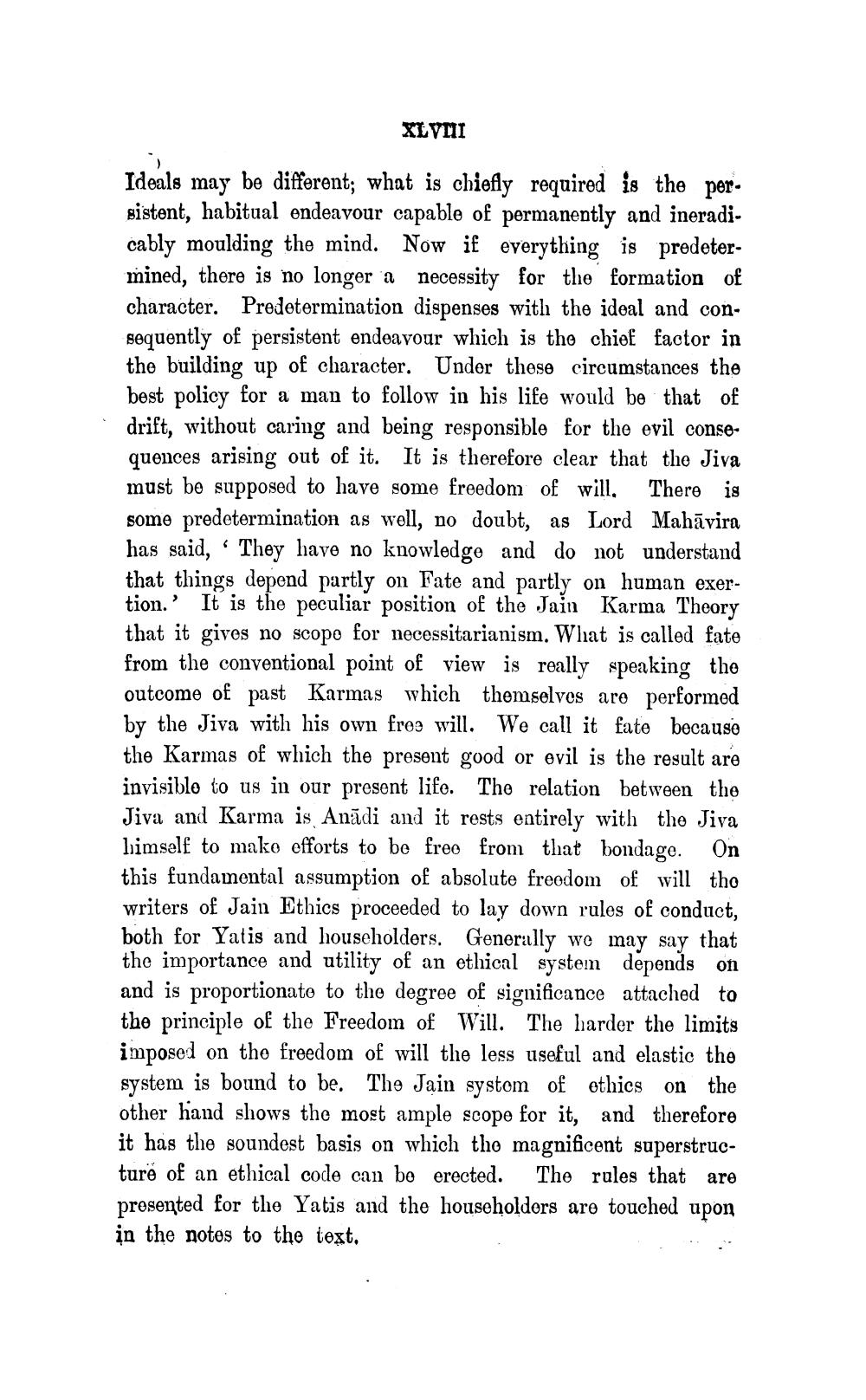________________
XLVIII
Ideals may be different; what is chiefly required is the persistent, habitual endeavour capable of permanently and ineradicably moulding the mind. Now if everything is predetermined, there is no longer a necessity for the formation of character. Predetermination dispenses with the ideal and consequently of persistent endeavour which is the chief factor in the building up of character. Under these circumstances the best policy for a man to follow in his life would be that of drift, without caring and being responsible for the evil consequences arising out of it. It is therefore clear that the Jiva must be supposed to have some freedom of will. There is some predetermination as well, no doubt, as Lord Mahavira has said, They have no knowledge and do not understand that things depend partly on Fate and partly on human exertion.' It is the peculiar position of the Jain Karma Theory that it gives no scope for necessitarianism. What is called fate from the conventional point of view is really speaking the outcome of past Karmas which themselves are performed by the Jiva with his own free will. We call it fate because the Karmas of which the present good or evil is the result are invisible to us in our present life. The relation between the Jiva and Karma is Anadi and it rests entirely with the Jiva himself to make efforts to be free from that bondage. On this fundamental assumption of absolute freedom of will tho writers of Jain Ethics proceeded to lay down rules of conduct, both for Yatis and householders. Generally we may say that the importance and utility of an ethical system depends on and is proportionate to the degree of significance attached to the principle of the Freedom of Will. The harder the limits imposed on the freedom of will the less useful and elastic the system is bound to be. The Jain system of ethics other hand shows the most ample scope for it, and therefore it has the soundest basis on which the magnificent superstructure of an ethical code can be erected. The rules that are presented for the Yatis and the householders are touched upon in the notes to the text.
on the
(




